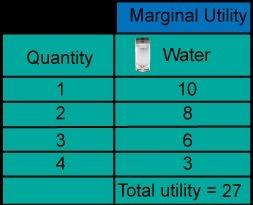
Business, 31.07.2019 21:10 breannaasmith1122
Suppose steve stone takes a job with zemo manufacturing, whose labor contract with its unions has an agency shop clause (30 days). steve multiple choice must join the union within 30 days. can decide against joining the union and place the union dues in a retirement account. can decide against joining the union but then will not receive any union-negotiated wage increases. can decide against joining the union but nevertheless will have to pay union dues or donate an equivalent amount to an approved charity.

Answers: 3


Another question on Business

Business, 22.06.2019 05:10
1. the political environment in india has proven to be critical to company performance for both pepsico and coca-cola india. what specific aspects of the political environment have played key roles? could these effects have been anticipated prior to market entry? if not, could developments in the political arena have been handled better by each company? 2. timing of entry into the indian market brought different results for pepsico and coca-cola india. what benefits or disadvantages accrued as a result of earlier or later market entry? 3. the indian market is enormous in terms of population and geography. how have the two companies responded to the sheer scale of operations in india in terms of product policies, promotional activities, pricing policies, and distribution arrangements? 4. “global localization” (glocalization) is a policy that both companies have implemented successfully. give examples for each company from the case.
Answers: 1

Business, 22.06.2019 10:30
Perez, inc., applies the equity method for its 25 percent investment in senior, inc. during 2018, perez sold goods with a 40 percent gross profit to senior, which sold all of these goods in 2018. how should perez report the effect of the intra-entity sale on its 2018 income statement?
Answers: 2

Business, 22.06.2019 12:20
Consider 8.5 percent swiss franc/u.s. dollar dual-currency bonds that pay $666.67 at maturity per sf1,000 of par value. it sells at par. what is the implicit sf/$ exchange rate at maturity? will the investor be better or worse off at maturity if the actual sf/$ exchange rate is sf1.35/$1.00
Answers: 2

Business, 22.06.2019 12:50
There is a small, family-owned store that sells food and household goods in a small town. the owners have good relations with the community, especially with local farmers who supply much of the food. the farmers aren't organized into a cooperative or union, and the store deals with each individually. suppose the store wanted to buy some farms to control the supply of certain vegetables. how would you classify this strategic move? select one: a. horizontal integration b. forward integration c. backward integration d. concentric integration
Answers: 2
You know the right answer?
Suppose steve stone takes a job with zemo manufacturing, whose labor contract with its unions has an...
Questions








English, 30.12.2019 20:31


Chemistry, 30.12.2019 20:31


Mathematics, 30.12.2019 20:31






History, 30.12.2019 20:31

Mathematics, 30.12.2019 20:31

English, 30.12.2019 20:31




